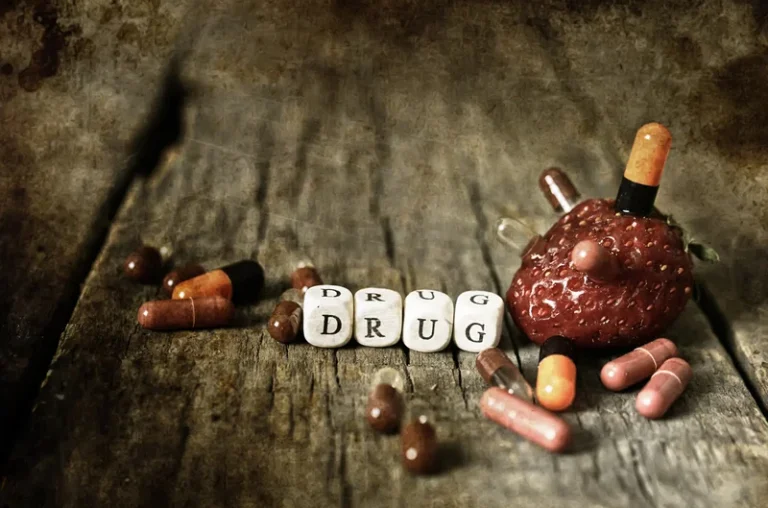Blood Thinners and Alcohol: Interactions, Risks, and Side Effects

“Coagulate” is a medical term that means “to clot.” These blood thinners prevent blood clots by increasing the amount of time it takes your blood to clot. When you drink blood thinners and alcohol, it can interact with the medication and potentially increase the risk of bleeding or other adverse effects. Since alcohol itself has blood thinning properties, combining it with blood thinners can enhance this effect, leading to increased alcohol-related excessive bleeding episodes.
- When it comes to the health of your blood vessels, have a conversation with your doctor.
- It’s recommended to limit alcohol intake to no more than one drink/day for women and no more than two drinks/day for men.
- That said, some studies have found that low to moderate consumption of alcohol is generally safe for people on blood thinners.
- They often treat and prevent life-threatening conditions that can happen because of blood clots, like strokes, heart attacks and pulmonary embolisms.
Alcohol Abuse and Blood Clots
But it’s important to learn about both before you start taking them. Eliquis is a common blood thinner that does not require routine blood tests like some anticoagulants do. Using alcohol with Eliquis can increase the risk of internal bleeding, so alcohol use should be limited. People should speak with a healthcare professional about consuming alcohol and taking blood-thinning medications safely. A person should also speak with a doctor or access online support if they have concerns that they or someone they know may have AUD.
Treatment Programs

Below are answers to common questions about whether alcohol may thin the blood. Call your doctor right away if you have any unexplained bleeding or bruising, nausea or vomiting, blood in your urine or stools, headache, dizziness, or weakness. This literature review is the foundation of the current alcohol consumption guidelines.
You deserve excellent care and a rewarding life in recovery.
Your doctor may tell you to limit your participation in contact sports to reduce the chance of bleeding. However, this doesn’t mean you can’t exercise or live your day-to-day life. The most common side effect risk with any anticoagulant is bleeding.
Gratitude enhances health, brings happiness — and may even lengthen lives
- Additionally, the National Institute on Alcohol Abuse and Alcoholism (NIAAA) offers guidance on finding treatment and support for AUD.
- This can lead to dangerous situations such as bleeding in the brain, which can trigger strokes or heart attacks.
- People who take anticoagulant medications should use herbal supplements and teas with caution.
- Did you know that alcohol is the third-leading preventable cause of death in the United States?
As Americans increasingly drink too much in the form of binge drinking, heavy drinking, or AUD, the risks of health problems increase. This is not just alcohol poisoning or drunk driving, but chronic health problems like heart disease. Although some medical studies have found that moderate drinking can provide some positive blood thinning effects, reducing the risk of blood clots, drinking too much has the opposite effect. Blood thinners are medicines that help keep you from forming blood clots as easily, which keeps your blood flowing smoothly through your veins and arteries.
The process of blood clotting is very complex, with multiple chains of chemical reactions called the “clotting cascade” that must occur to develop a blood clot. Blood thinners slow parts of this process, making blood clots form more slowly. This helps prevent blood clots from lodging in the heart, causing a heart attack; in the brain, causing a stroke; or in the lungs, causing a pulmonary embolism. Research suggests drinking alcohol may thin the blood by affecting platelets, which are the parts of blood that initiate coagulation, or clotting.
Can you drink alcohol instead of taking a blood thinner?
For example, a blood clot can form elsewhere in the body and travel to the heart, lungs, or brain. This type of blockage can lead to life-threatening conditions such as pulmonary embolism, stroke, or heart attack. Blood-clotting in the circulatory system is referred to as blood thinners and alcohol thrombosis. Blood thinners are medications given to people with a high risk of dangerous levels of blood-clotting. Doctors warn people who are taking Aggrenox to moderate their alcohol consumption. Heavy drinking with these drugs increases the risk of stomach bleeding.

How can I take blood thinners safely?
But limiting them in your diet and being consistent in the portions you do eat is important. Changing up how much vitamin K you’re getting each day can prevent warfarin from doing its job. “It’s important to understand drug-food interactions when you’re taking a blood thinner like warfarin (Coumadin®) the most common one,” warns Dr. Bishop. Blood thinner medications prevent blood from sticking together (coagulation) which increases the amount of time it … Females retain more alcohol in the bloodstream than males, so they are at higher risk of developing problems from combining alcohol with medications. Your doctor will test you with an international normalized ratio (INR) test.


A combination of medical advice from a health care provider, social, and family support is also essential. If you drink heavily, there can be a rebound effect https://ecosoberhouse.com/ in that the bleeding risk increases, even after you’ve stopped drinking. Alcohol intake is the main factor determining how long the effects last.
Your insurance plan may cover some or all of the cost of treatment for drug or alcohol addiction. Our online health insurance verification system will estimate your in-network and out-of-network deductibles, coinsurance percentages and out-of-pocket maximums. Within 5 minutes, you’ll receive an email with these details – free of charge. Alcohol should be limited while using Effient, especially among older adults.






